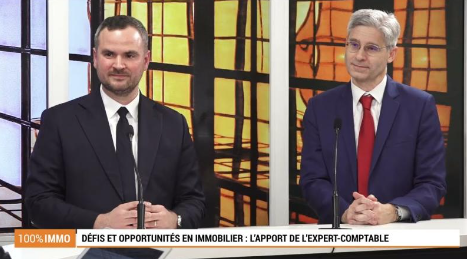2nd Lockdown € 20 Billion in Aid

As France Goes Into 2nd Lockdown Government Proposes Additional € 20 Billion in Aid
President Macron’s vow of “whatever it takes” to support the French economy through the Covid crisis was on display on October 29 when Prime Minister Jean Castex presented the newly amended budget for 2020. The budget is the fourth since the beginning of the crisis and anticipates the effects of a second lockdown.
Olivier Blanchard, former chief IMF economist, characterised the change from earlier measures :
« If in the first wave governments had favored guaranteed loans and exemption from charges, it will be more difficult in the second wave because it would lead to high levels of debt and bankruptcy rates. Aid will therefore have to take the form of grants instead” this time »
Castex announced that the government will release an additional 20 billion euros to strengthen the support measures already in place for companies that will be affected by the country’s second national lockdown. (in force until December 1, though health experts have warned a longer clampdown may be necessary).
“We must collectively assume these expenses because to do nothing would have an economic, financial and especially human cost even more considerable”, said the Prime Minister Castex.
Although the exact sum remains to be determined, this new amount of « about €20 billion » will be added to the support measures already in place, expenditures totaling about 64 billion euros.
Included are funds for solidarity funds, partial unemployment support, state-guaranteed loans, tax incentives to lower rents, and exemptions from social security contributions ; all currently in place, but for larger amounts or to be made more inclusive.
The solidarity fund, set up in the Spring to help SMEs and the self-employed, receives an additional 6 billion euros.
- Will also include €1,500 per month for VSEs with fewer than 10 employees who are subject to closing during lockdown.
- As of November 1, the maximum aid will be 10,000 euros per month and may be paid to all companies with a maximum of 50 employees.
- Businesses in certain sectors (culture, sports, hotels, restaurants, etc.) will also be able to benefit from this 10,000 euros in the event of a loss of 50% of turnover.
- For all companies remaining open but still hurt by the crisis, the initial monthly aid of 1,500 euros is to be reactivated, paid to those with fewer than 50 employees who can justify a loss of turnover of more than 50%.
- In addition, all self-employed workers will be eligible for the solidarity fund under the same conditions as VSEs.
Partial Unemployment Support that was planned to be revised from November will be maintained.
- Therefore, until the end of the year, all companies – except those closed administratively or those most affected by the health measures – will see their employer expenses maintained at 15%, instead of rising to 40% as previously planned
- For the employee, he/she will still receive 70% of their gross (84% of net) and not 60% (72%). The planned tightening of payments is postponed to January 1.
- In addition, for closed or businessesmost affected – hotels, cafés, restaurants, sports clubs and their suppliers – reimbursement by the state is full until the end of the year.
Tax assistance to lower rents : a tax credit to encourage landlords to cancel part of their rents.
- Those landlords who agree to waive at least one month’s rent over the October-December period will benefit from a tax credit of 30% of the rent.
- Tax credit will be open to all companies with up to 250 employees.
New one-year deferral for repayment of guaranteed loans
- A key demand from SMEs, which saw the first repayments of government-guaranteed loans (PGEs) arriving in March 2021. All the companies will be able to ask for a new deferment of repayment of one year, two years in total of deferment instead of one year as it was the case before.
- French Banking Federation has pledged to not consider all requests for additional deferrals from affected companies as defaults. Under normal circumstances, if a customer requests a further deferral of repayment, it is considered to be in default.
- Extending of state loans: up to 10,000 euros for companies with fewer than 10 employees and 50,000 euros for companies with 10 to 49 employees.
A new expansion of exemptions and deferral of social security contributions
- A total exemption for all companies that are ordered closed for the time of the lockdown, and which have less than 50 employees.
- The same rule will be applied to companies in the tourism sector that have lost more than 50% of their turnover.
In rolling out these expanded and strengthened support measures the French government is sending a strong message to the economic sector… « whatever it takes » is more than just a political soundbite.
Partner
International Business Services
Partner
 Alexis Gasto
Alexis Gasto Jean-Laurent Petel
Jean-Laurent Petel

